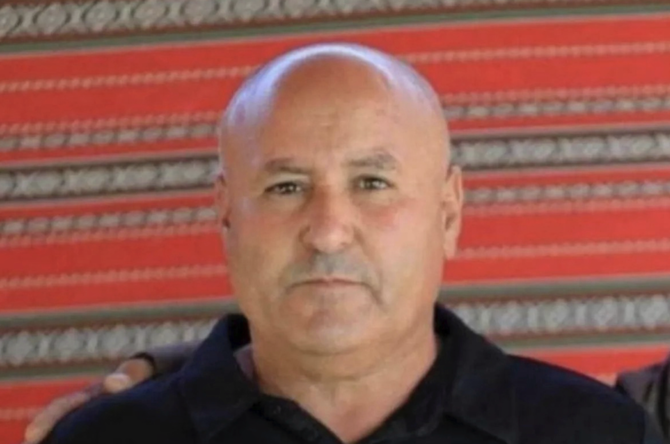BEIRUT: Lebanon’s caretaker Prime Minister Hassan Diab on Saturday threatened “to refrain” from exercising his duties in protest at politicians’ failure to form a new government.
The country’s lawmakers have failed to agree on a new administration since the last one resigned after the devastating Aug. 4 port explosion in Beirut.
There has also been a sharp increase in tension between President Michel Aoun and Prime Minister-designate Saad Hariri, as well as a currency collapse to contend with.
Angry protesters took to the streets in various regions after the dollar exchange rate on the black market jumped to LBP10,450, directing their anger at banks and supermarkets.
Diab, addressing the Lebanese in a televised speech, asked why people should “pay the price for political ambitions and maneuvers,” and warned that the country had “reached the brink of explosion” after the currency’s collapse.
“Is it required to dissolve the state after it has become the weakest link?” he asked. “The current crisis is likely to worsen, and the scene of the race for milk in the supermarket should be an incentive for transcendence and forming a government. The situation may force me to refrain (from exercising caretaker duties) and I may resort to it, although it contradicts my convictions. Who can deal with the next dangerous repercussions and more suffering of people?”
Analysts feared that Diab’s retreat may lead to a further collapse of the Lebanese pound, with lawyer and former minister Rachid Derbas explaining what could happen. next.
FASTFACT
Caretaker Prime Minister Hassan Diab, addressing the Lebanese in a televised speech, warned that the country had ‘reached the brink of explosion’ after the currency’s collapse.
“Refraining means (the) complete paralysis of the caretaker government’s work,” he told Arab News. “The late Prime Minister Rashid Karami had previously refrained. But I think that Diab’s move is in response to the pressures exerted on him by the ruling authority to hold Cabinet sessions in violation of the constitution because they do not want to form a new government now.”
He added that if Diab decided to refrain there would be more pressure on Aoun and the leader of the Free Patriotic Movement (FPM) Gebran Bassil, who were “obstructing” the formation of the government.
“But I believe that Aoun and Bassil will not back down from imposing their conditions for the formation. Portraying the dispute as between Hariri and Aoun is absurd. Hariri will not give the ‘blocking third’ to Aoun or the FPM, as he is not ready to be another Hassan Diab.”
He also forecast the trouble that lay ahead if Hariri walked away from forming a government.
“This means that the exchange rate of the dollar will reach LBP20,000.”
Another former minister, Ziyad Baroud, said that Diab was simply raising the alarm because there was “no such thing” in the Lebanese constitution about the caretaker prime minister refraining.
“The government is resigned and business is running in a narrow sense,” he told Arab News. “If Diab decides to refrain, this will effectively paralyze the wheel of public administration completely. His position is political and not constitutional, as he says that he cannot be a caretaker indefinitely. He is raising the alarm and making a point for history.”
He also said that those who were blocking the government’s formation would not budge from their positions. “They are not affected by the people taking to the streets and their cries that they are hungry.”


























